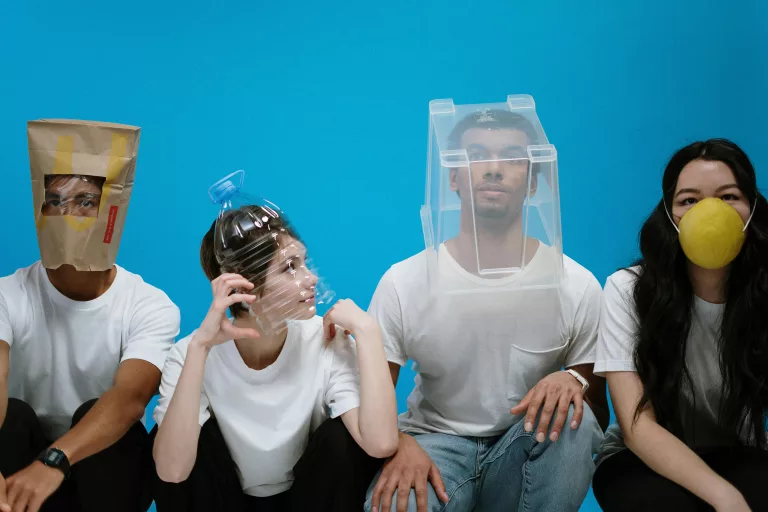The Repercussions of the Pandemic on the Music Industry


The music industry, like many sectors, has undergone profound transformations due to the global COVID-19 pandemic.
Lockdowns, travel restrictions and the cancellation of live events have therefore presented considerable challenges.
However, this crisis has also been the catalyst for ingenious adjustments and creative innovations within the industry.
Pandemic: Cancellations of Live Events
One of the first and most notable impacts of the pandemic on the music industry was the mass cancellation of live events. Concerts, festivals and tours have therefore been postponed or even canceled.
This left artists without a physical stage to connect with their audience. This disruption has not only affected musicians, but also an entire chain of industry players, from technicians to concert hall managers.
Pandemic: The Rise of Virtual Performances
Faced with the impossibility of performing in front of an audience in person, many artists quickly embraced virtual performances.
Streaming concerts, broadcast on platforms such as YouTube, Instagram Live and Twitch, have become a new norm.
These performances allowed artists to stay connected with their audiences, generate revenue through online ticket sales, and showcase creative concepts in a virtual environment.
Pandemic: Economic Impacts on Independent Artists
The crisis has accentuated the economic challenges that many independent artists were already facing.
With the cessation of tours and concerts, a crucial source of income has disappeared. As a result, the pandemic has highlighted the need to think about new economic models.
Pandemic: The Reinvention of Revenue Models
To cope with the economic crisis, many artists have diversified their sources of income.
In addition to streaming concerts, merchandise sales, brand collaborations, and online partnerships have gained importance.
Artists have explored subscription models, paid online concerts, and other creative initiatives to maintain financial stability.


Impact on Studio Recordings
Pandemic restrictions have also impacted studio recording processes. Recording sessions were delayed or canceled, and many artists had to adopt remote recording methods.
This has therefore favored the use of cutting-edge technologies to allow musicians to collaborate virtually, despite physical distance.
Developments in Musical Consumption
The way listeners consume music has also undergone significant changes during the pandemic.
With more time spent at home, demand for music content has increased, but preferences have evolved.
Soothing playlists, the rediscovery of familiar songs and the exploration of new genres have therefore been notable trends.
Support for Charity Organizations
Some artists have used their platform to support causes related to the pandemic.
Online charity concerts, fundraisers and initiatives aimed at helping impacted music industry workers have emerged.
This solidarity demonstrated the unifying power of music, even in difficult times.
The Revival of Podcasts
Podcasts have seen a revival during the pandemic, providing an engaging alternative to live music.
Artists have created their own podcasts, exploring topics ranging from behind the scenes of the music industry to broader discussions about life and culture.
Emergence of New Virtual Experience Formats
The pandemic has given rise to new virtual experience formats, going beyond simple streaming concerts.
Immersive virtual reality (VR) experiences have grown in popularity, offering spectators the opportunity to experience performances as if they were physically present.
These innovations have opened new avenues for the fusion between technology and music, creating unique and memorable experiences.


Pandemic: Virtual Artist Collaboration
Travel restrictions have spurred virtual collaboration between artists, regardless of geographic location.
Songs were created, entire albums were produced, and online concerts were organized with artists interacting from different locations.
This trend has the potential to redefine the very nature of musical collaboration, expanding creative horizons beyond physical boundaries.
Pandemic: The Influence of Social Networks on Music Promotion
Social media has played a central role in music promotion during the pandemic.
Platforms like TikTok have propelled songs to virality, giving emerging artists rapid global exposure.
Artists have leveraged viral challenges, live sessions, and other features to stay connected with their audiences and expand their fanbase in innovative ways.
Pandemic: Transformation of Listeners' Expectations of Artists
The health crisis has led listeners to reevaluate their expectations of artists. Authenticity, resilience and commitment to social causes have become important criteria for listeners.
Artists who shared more personal aspects of their lives, expressed vulnerability, and showed community support gained popularity.
This transformation in expectations could have a lasting impact on the relationship between artists and their audiences.
Redefinition of Monetization Strategies
The pandemic has forced many artists to rethink their monetization strategies.
With the cancellation or limitation of tours, new business models have emerged. Some artists have opted for paid online concerts, exclusive subscriptions, or selling merchandise directly to fans.
This period initiated a significant change in the way artists generate income, with long-term implications for the diversification of funding sources.
Impact on Record Companies and Distribution Channels
Record labels and distribution channels have also undergone transformations.
Canceled tours have led to a decrease in traditional revenues, forcing these industry players to explore new avenues.
Partnerships with streaming platforms, investments in the production of virtual concerts, and collaborations with emerging artists have been strategic responses to maintain economic momentum despite the challenges.


Reflection on Sustainability and Ethics in the Music Industry
The pandemic has caused deep reflection on sustainability and ethics within the music industry.
Discussions about fair artist compensation practices, reducing the carbon footprint of touring, and adopting more environmentally responsible practices have gained momentum.
Artists and businesses are now looking to integrate these considerations into their operations, anticipating a more ethical and sustainable music industry in the future.
Conclusion
The pandemic has imposed unprecedented challenges on the music industry, but it has also catalyzed ingenious adaptations and innovations.
Artists, industry professionals and listeners have witnessed rapid transformations, from how music is created and distributed to how it is consumed.
As the world gradually emerges from the crisis, these changes could continue to shape the future of the music industry, highlighting the resilience and creativity of this ever-changing universe.
